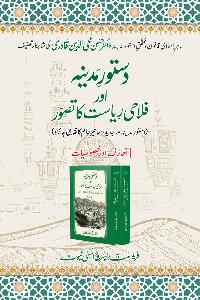Glossary
Ādam (عليه السلام): name of the first Prophet of Allah, i.e. Adam.
Athar: pl. āthār. lit. relating. Generally used for a hadith related by one of the Companions, as distinguished from one of the Prophet’s own.
da‘īf: an inaccurate narration which does not qualify to be either sahīh (sound) or hasan (fair), and hence cannot be used as a basis of an Islamic opinion.
dīn: it is an Arabic word for religion. It is more specifically used for the religion and revealed books of the prophets and the messengers. It is a comprehensive term covering not only religious rites and rituals but also applies to all aspects of life and provides guidance in all of its pursuits, while madhab (religion) is restricted to man’s spiritual life and regulates its relationship with God alone.
dinar: an ancient gold coin.
dirham: a silver coin weighing 50 grains of barley with cut ends. It equals to one-twelfth of ūqiyah (128 grams) of gold in value.
du‘ā’: lit. to call someone; making supplication to Allah.
Fajr: dawn or early morning before sunrise; morning prayer.
gharīb: a hadith or version reported by one reliable or unreliable narrator which differs in context with another hadith or version reported by a group of reliable narrators. A gharīb hadith can be sahīh (sound) or da‘īf (weak).
ghawth: lit. one to whom we can cry for help. A mediator; a title given to a saint of the highest order.
hadith: pl. hadiths. The sayings, practice and approved traditions of the Prophet Muhammad (صلى الله عليه وآله وسلم).
hāfiz: lit. a guardian or protector. (1) one of the names of God, al-Hāfiz. (2) a governor, guardian of the Makkan temple. (3) one who has committed the whole of the Qur’ān to memory. (4) one who has committed 1 lakh hadiths to memory.
hajj: the yearly pilgrimage of the Muslims to Makkah.
Hārūn (عليه السلام): the prophet Aaron.
hasan: a hadith, narrated by a reliable chain of transmission though not approaching the grade of sahīh (sound) hadith, but records a complete chain of narrators up to the Prophet (صلى الله عليه وآله وسلم).
Imam: one who leads people in prayers; an eminent Islamic scholar.
‘Īsā (عليه السلام): name of Allah’s penultimate messenger, Jesus.
Isrāfīl (عليه السلام): name of an angel of high rank.
istighāthah: to ask someone for help.
Jibrīl (عليه السلام): the archangel Gabriel who brought the revelations of Allah to His messengers.
jihad: the word jihad, in terms of the acquisition of a desirable and commendable objective, carries a number of meanings. Jihad is striving against the evils of the self, and it is also the struggle waged for the propagation of Islam and the integrity of Ummah. For example, to launch jihad through tongue and pen for the improvement and development of the Islamic society; an armed struggle against the exploitive forces is also jihad but this is ‘minor jihad’ while a perpetual struggle against the evil wishes of one’s self is ‘major jihad’. Jihad is one of the cardinal articles of Islam.
Ka‘bah: a cube-shaped building at the centre of al-Masjid-ul-Harām (the great mosque at Makkah) towards which all Muslims face in prayer. It is also known as the House of Allah.
kawthar: lit. abundance. A pond in Paradise.
lahd: the hollow made in the grave on the Ka‘bah side, in which the corpse is placed.
maqām Ibrāhīm: the place at Makkah within the boundary of al-Masjid-ul-Harām, to have the impression of the footprints of the Prophet Ibrāhīm (عليه السلام). There is a stone on which Ibrāhīm (عليه السلام) stood while he and his son, the Prophet Ismā‘īl (عليه السلام), were building the Ka‘bah.
Maryam: the Prophet ‘Īsā’s mother; Mary.
mawdū‘: a mawdū‘ tradition narrated by a liar, a narrator whose act of lying in relating traditions has been proved.
Mīkā’īl (عليه السلام): name of an angel, Micheal.
mu’adhdhin: one who gives the adhān, the call to prayer, loudly calling people to come and perform the prayer.
Mūsā (عليه السلام): the prophet Moses.
nawāfil: pl. of nafl, a voluntary act; a work of supererogation.
Nūh (عليه السلام): the prophet Noah.
Rabb: one of the names of Allah; Sustainer.
sahīh: sound. A hadith with an unbroken chain of narrators ranging from the Prophet Muhammad (صلى الله عليه وآله وسلم) and approaching an era through reliable narrators without being shādh (odd) or mu‘allal (faulty) in between the two cross relaters.
Sālih (عليه السلام): the prophet Salih.
Shariah: lit. road. It is a legal modality of a people based on the revelation of their prophet/messenger. The last Shariah is that of Islam that abrogates all previous shariahs.
Sunnah: pl. sunnahs. lit. the path, way or a form, the customary practice of a person or a group of people. It has come to refer almost exclusively to the legal way or ways, orders, statements and acts of worship, etc., of the Prophet Muhammad (صلى الله عليه وآله وسلم) which have become the models to be followed by the Muslims.
surah: a chapter of the holy Qur’ān. There are 114 chapters in the holy Qur’ān.
taqwā: lit. it means abstinence; piety. In its technical sense, it means to abstain from dubious acts for Allah’s pleasure and for fear of His displeasure.
‘Uzayr (عليه السلام): name of the prophet Ezra.
Ya‘qūb (عليه السلام): the prophet Jacob.
Yūsuf (عليه السلام): name of the prophet Joseph.
Zakariyyā (عليه السلام): Arabic name of the prophet Zachariya.
zakat: a yearly fixed percentage of wealth and property of the Muslims liable to zakat to be paid to the poor and the needy of the Muslim Community. It is obligatory, as it is one of the five indispensable pillars of Islam.
Copyrights © 2024 Minhaj-ul-Quran International. All rights reserved




![The Constitution of Medina & The Concept of the Welfare State [Introduction and Salient Features]](https://minhajbooks.com/images-books/thumbnails200/The-Constitution-of-Medina-amp-The-Concept-of-the-Welfare-State-Introduction-and-Salient-Features-Dr-Hassan-Qadri_722.jpg)